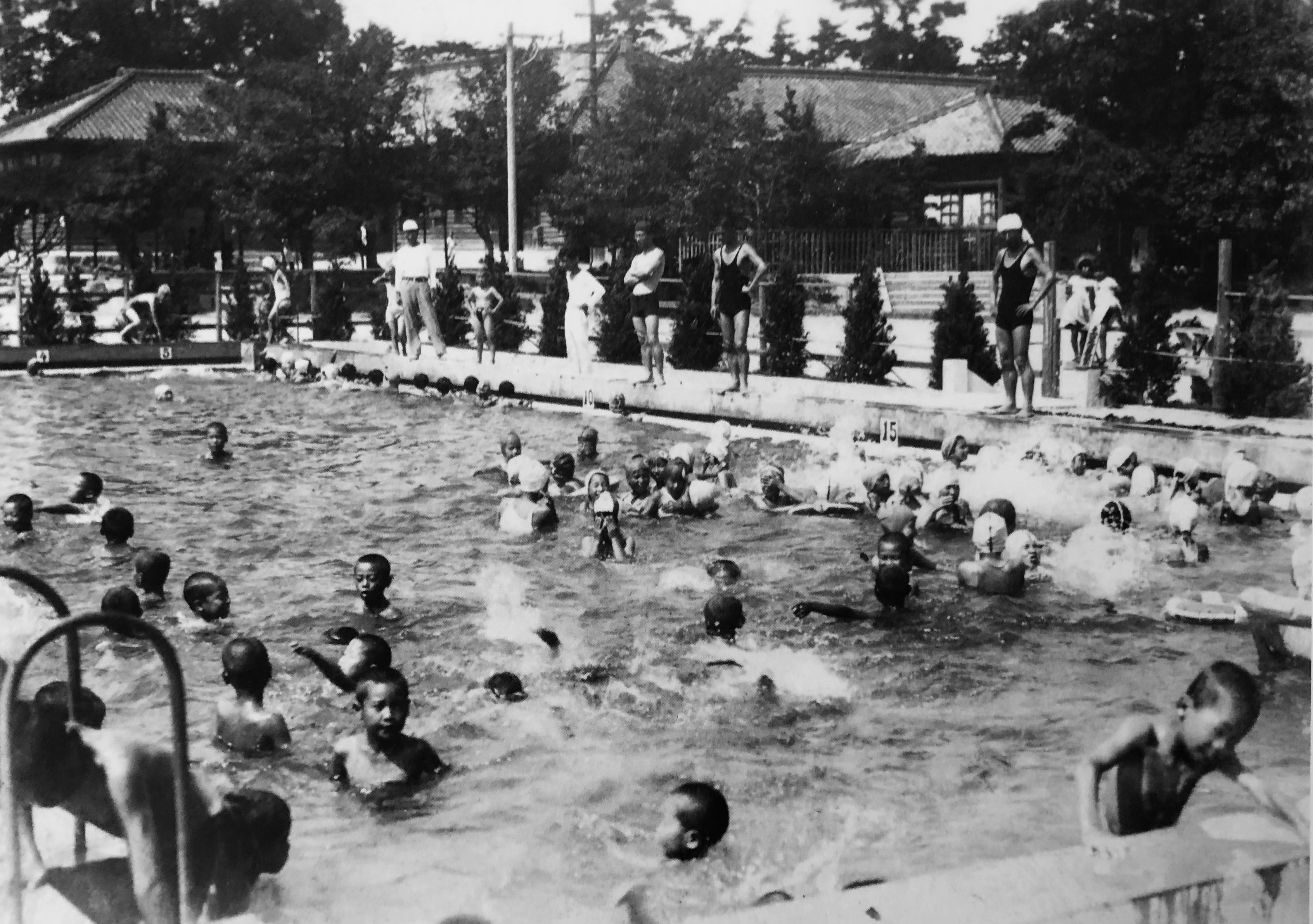1. Early Life and Background
Hiroshi Suzuki's journey into competitive swimming began in his hometown, where he developed a passion for the sport from a young age, laying the foundation for his future Olympic and Asian Games successes.
1.1. Birthplace and Childhood
Hiroshi Suzuki was born on September 18, 1933, in Motonoomi-cho, Okazaki City, Aichi Prefecture, then part of the Empire of Japan. His initial encounters with swimming were informal yet impactful, as he spent his childhood swimming with friends in the Ōhiragawa, a local river also known as the Otogawa River. These playful sessions were where he passionately honed his swimming skills, laying the groundwork for his future as a competitive athlete.
1.2. Early Training and Development
During his high school years, Suzuki continued to develop his swimming prowess. He trained at the first public pool in Okazaki City, located at the Okazaki City Renjaku Jinjo Elementary School (now Okazaki City Renjaku Elementary School). This pool, constructed in 1936, measured 82 ft (25 m) in length and 30 ft (9 m) in width, providing a crucial environment for his formative training.

1.3. Education and Junior Career
While attending Aichi Prefectural Okazaki Kita High School, Suzuki began to gain national recognition. In August 1950, he secured third place in the 100-meter freestyle event at the East-West High School Swimming Tournament. The following month, in September 1950, he again placed third in the 100-meter freestyle at the 5th National Sports Festival, recording a time of 1 minute 2.2 seconds. His talent attracted attention, leading to an enthusiastic recruitment offer from the swimming club of Nihon University Daisan High School. He transferred to this school in March 1951. Following his high school education, Suzuki pursued higher studies at Nihon University, graduating from its Faculty of Economics in 1956.
2. Swimming Career
Hiroshi Suzuki's competitive swimming career was marked by his participation and medal-winning performances in several major international events, showcasing his skill and determination on the global stage.
2.1. 1952 Helsinki Olympics
Suzuki represented Japan at the 1952 Summer Olympics held in Helsinki, Finland. He achieved remarkable success, securing two silver medals. In the men's 100-meter freestyle event, he finished second, earning a silver medal. Notably, he recorded an identical time to the gold medalist, Clarke Scholes of the United States. However, officials ultimately awarded Scholes the gold medal and Suzuki the silver based on a judges' decision. Suzuki also earned a silver medal as part of the Japanese team in the men's 4x200-meter freestyle relay.
2.2. 1954 Asian Games
Following his Olympic success, Suzuki continued his strong performance at the 1954 Asian Games in Manila, Philippines. He demonstrated his dominance in freestyle events by winning two gold medals. He secured a gold medal in the 100-meter freestyle, triumphing over competitors such as Teijiro Tanikawa and Neo Chwee Kok of Singapore. Additionally, he contributed to the Japanese team's gold medal victory in the 4x200-meter freestyle relay.
2.3. 1956 Melbourne Olympics
Suzuki participated in his second Olympic Games at the 1956 Summer Olympics in Melbourne, Australia. In the 100-meter freestyle event, he reached the semi-finals but placed fifth, which prevented him from advancing to the final. He also competed in the 4x200-meter freestyle relay, where the Japanese team finished in fourth place.
3. Post-Retirement Life
After concluding his distinguished competitive swimming career, Hiroshi Suzuki transitioned into the business sector and received notable recognition for his contributions.
3.1. Professional Career
Upon retiring from competitive swimming, Hiroshi Suzuki embarked on a professional career in the business world. He joined Nittsu Shoji (日通商事Japanese), a prominent Japanese trading company. Through his dedication and leadership, he rose through the ranks to serve as a Senior Managing Director (専務), demonstrating a successful transition from athletic excellence to corporate leadership.
3.2. Personal Recognition
Hiroshi Suzuki has received significant personal accolades from his hometown. Okazaki City, his birthplace, recognized his achievements and contributions by certifying him as a "Sanshu Okazaki Aoi Citizen" (三州岡崎葵市民Japanese). In 2008, it was noted that he had returned to Okazaki City, marking his return to his roots after approximately 50 years.
4. Legacy and Assessment
Hiroshi Suzuki's legacy is defined by his remarkable achievements as a Japanese swimmer and his embodiment of the Olympic spirit. His two silver medals at the 1952 Helsinki Olympics, particularly the close finish in the 100-meter freestyle, cemented his place in Japanese swimming history. His double gold medal performance at the 1954 Asian Games further showcased his dominance in the region. Beyond his athletic prowess, his successful career in the business sector and the recognition from his hometown highlight a life dedicated to excellence and community, serving as an inspiration for future generations of athletes and citizens.